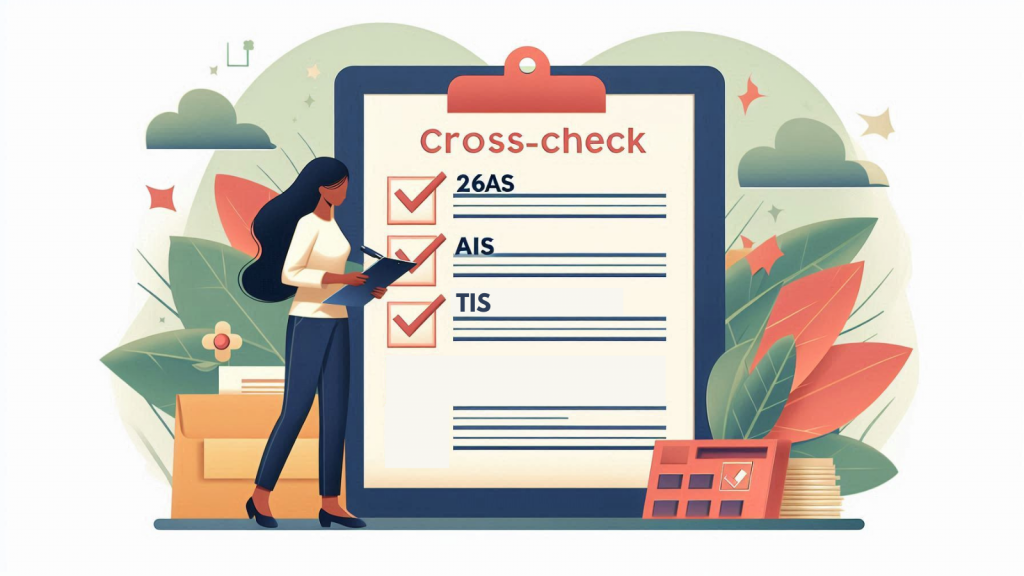Introduction
In today’s article, we delve into five crucial points every Non-Resident Indian (NRI) should consider before filing their income tax return. Ensuring your returns are error-free and accepted by the income tax department can prevent unwanted notices and complications. If you are an NRI preparing to file your income tax return this year, make sure to address these five critical points. It is estimated that 90% of notices arise from not following these essential checkpoints. Read on to understand these key points and ensure a hassle-free tax filing experience.
Don’t let reading hold you back, watch our video instead
1. Comprehensive Review of All Income Sources
When filing your income tax return, it’s vital to consider all income sources from India. Many people limit their review to their bank statements, but some income might not be reflected there yet still needs to be included in your return. For instance:
- Interest on Fixed Deposits (FDs): Interest from a five-year FD won’t show in your bank account but must be included in your income.
- Rental Income: Rental income deposited in a spouse’s or parent’s account should also be declared.

Overlooking these incomes can lead to significant issues with the income tax department. It’s important to remember that for NRIs, the income tax department can review your returns for up to 16 years. Paying slightly more taxes now can save you from future complications.
2. Clubbing Income of Spouse and Family Members
Another critical aspect is the income generated from investments made in the names of your spouse or other family members. This is especially relevant for NRIs working on ships or in similar roles, where investments might be channeled through the spouse.

Key Points to Note:
- Clubbing Provision under Section 64: Without a proper and irreversible gift deed, any income generated from your sources and invested through your spouse must be included in your income.
- Seafarers: Often, NRIs working abroad channel investments through their spouses. Ensure that these are properly clubbed to avoid discrepancies.
Your Chartered Accountant (CA) should be aware of these provisions to ensure accurate tax filing and prevent issues with the income tax department.
Consult CA Arun Tiwari for more information at 📞 8080088288 or cs@aktassociates.com
3. Including Income of Minor Children
Investing in the name of minor children is common, but the income generated from these investments should be added to the parent’s income who is in the highest tax slab. Often, people open bank accounts or FDs in their children’s names and forget to report the income generated.
How to Handle:
- Clubbing with Parent’s Income: Under tax laws, this income must be included in the parent’s income who is in the highest income bracket.
- Family Trusts: Creating a Family Trust can be a solution, ensuring the benefit of your children until they become adults. If you need more information on Family Trusts, feel free to leave a comment.
Ensuring the correct inclusion of these incomes can prevent future tax complications.
4. Cross-Verify 26AS, AIS, and TIS
Before filing your income tax return, it is crucial to cross-check your 26AS, AIS, and TIS documents. These documents are prepared by the income tax department based on information from various sources like banks, brokers, and registrars.

Steps to Take:
- Verify Accuracy: Ensure there are no discrepancies between the income reported by you and the information in these documents.
- Rectify Mismatches: If any mismatch is found, file a grievance to rectify the data before filing your return.
This verification step is essential to ensure your return is accurate and prevent potential issues with the tax department.
5. Selecting the Correct ITR Form
Choosing the right income tax form is crucial for your return to be accepted. If you select the wrong form, your return will be rejected, and it will be considered as if you never filed it. The department can then levy penalties for non-filing and require you to file a belated return with the correct form.

Form Selection:
- Basic Income: Generally, ITR 1 or ITR 2 is sufficient.
- Capital Gains: For income involving capital gains, you may need to use ITR 3.
If you’re unsure which form to choose, it’s best to consult someone experienced in filing returns to avoid errors.
Conclusion
In this article, we discussed five critical points NRIs should consider before filing their income tax return. Whether you are filing your return yourself or through someone else, ensure these points are checked to avoid issues with the income tax department. Properly processed returns ensure any refunds are received without hassle and reduce the chances of receiving notices for misreporting or using the wrong form.
If you have any questions or need further clarification on any point, feel free to leave a comment below. We’re here to help ensure your tax filing process is as smooth as possible.

